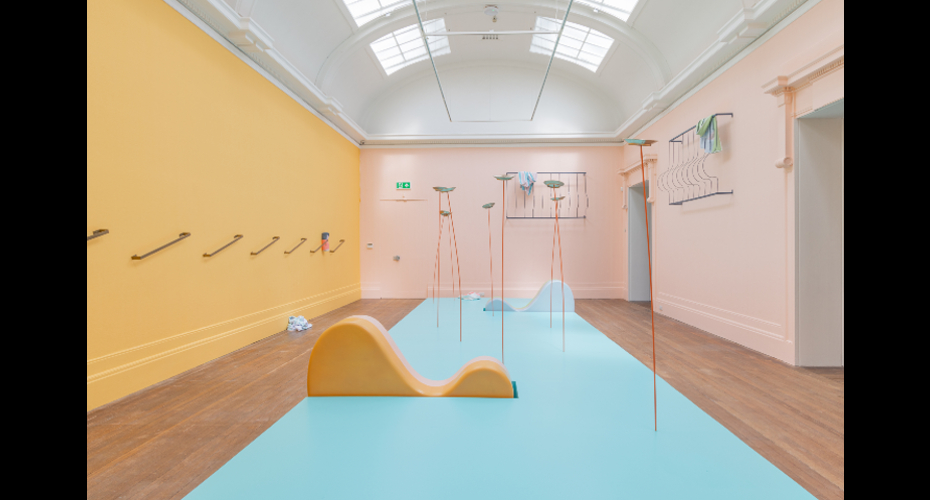The challenges and opportunities facing contemporary artists based in the UK's coastal communities is to be the focus of a new national academic fellowship, supported by the Arts and Humanities Research Council and Clore Leadership.
Artist and curator Garth Gratrix will investigate a range of issues including the extent to which creative practitioners are empowered or constrained by their coastal location, and why certain towns such as St Ives and Margate have flourished as cultural hubs while similar locations have not.
The research project grant serves as an extension of the Clore Fellowship, which Gratrix was awarded in 2023 - the cultural leadership programme for exceptional candidates in areas such as the visual and performing arts, museums, libraries, archives and heritage, film and digital media, and cultural policy and practice.
As a Clore Visual Artist Fellow, Gratrix was recognised for his extensive artistic and curatorial practice and his work as founder of Abingdon Studios in Blackpool. The new research project grants will help inform the Fellows' development as future leaders as well as making a valuable contribution to the wider understanding of strategic leadership issues and challenges. For the project, Gratrix will be mentored by Dr Daniel Fountain, Senior Lecturer in Art History and Visual Culture at the University of Exeter.
"Working in Blackpool as an artist and founder of the first ever studio and project space provision on the North West coastline, my practice is concerned with understanding fringes, particularly those queer creatives who are forming nuanced methods of communicating ideas through materials, the landscape, the body," said Gratrix. "I hope my research will help artists to understand their contribution to the sector, as well as invite cultural programmers and leaders to begin to reconsider and envision the coastline as a necessary exterior defence for our cultural prosperity."
Through the project, which officially commences in September, Gratrix will review current policies and funds associated with arts and culture in coastal locations, such as Levelling Up for Cultural Places, and the Coastal Communities Fund. He will also respond through practice-based research, building upon the success of recent exhibitions such as FLAMBOYANT FLAMINGOS at the Grundy Art Gallery which explored coastal marginality in dialogue with works by renowned contemporary artists, Derek Jarman and Felix Gonzalez-Torres.

Gratrix will explore several questions, including the extent to which artists feel they have access to opportunities when living in coastal areas; the legacy of investing in coastal creative ambition; and examining the differences between success stories such as Margate, Eastbourne and St Ives, compared with northern towns such as Blackpool and Grimsby, as a first step towards bridging the gap between North and South coastal regeneration.
As part of this, he will also join up artists with studio practices in diverse coastal locations, so that they can share knowledge around practice, income, opportunities, access, and identity.
Dr Fountain - a world-leading artist, curator and researcher with expertise in gender, sexuality and contemporary art - will supervise Gratrix through the project, providing research support and collaborating on the project activities.
"Garth is recognised internationally for his practice, but also for his unwavering support and commitment to supporting the careers of LGBTQ+ artists" said Dr Fountain, of the Department of Languages, Cultures and Visual Studies. "In this challenging climate for artists, we need inspirational, socially-informed ambassadors who are able to build collaborative networks, work collegiality with communities, and offer evidence-based advice to policy-makers for social action".






